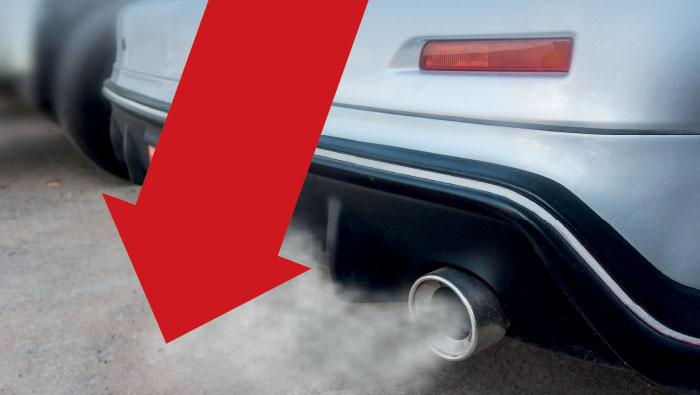
Muscat: A decrease in the level of harmful carbon-based and other pollutants has been noticed during the lockdown to stop the spread of COVID-19 in Oman.
A new study, conducted by the Sultanate’s Environment Authority, shows significant drops in the levels of key pollutants such as sulphur dioxide, nitrogen dioxide, carbon monoxide, and suspended particulate matter.
The authority, represented by the Directorate General of Environmental Affairs, analysed the air quality in three areas of Muscat: Al Khuwair, Mawaleh, and Wattayah. Levels of nitrogen dioxide were found to have dropped by 82 per cent in Wattayah, while South Al Mawaleh saw an overall decrease in impurities, ranging from 1.6 to 71.7 per cent for the various pollutants included in the study. Sulphur dioxide levels in Al Khuwair decreased by 36 per cent.
The study evaluated pollutant data from two periods: the first being before the arrival of the pandemic, in July 2019, and the second after its arrival, in April 2020.
The causes of pollution, such as economic activities, overpopulation, and vehicular traffic, were also analysed.
The authority said in its report, “Measurements of the concentration of gaseous emissions were taken from monitoring stations to study air quality, and the results and figures have shown a significant decrease in pollutant concentrations during the coronavirus pandemic as a result of the decisions of the Supreme Committee, the most important of which was the closure of Muscat Governorate and the halting of schools and commercial activities.”
“This, in turn, was reflected in a broad decline in traffic and other activities,” added the report.
“It must be noted that transportation alone contributes to up to 23 per cent of global carbon emissions, motor vehicle emissions amount to 72 per cent and air transport causes 11 per cent of the total global emissions of greenhouse gases from the transport sector.”
To reduce the spread of the disease, the Governorate of Muscat entered a lockdown from April 10 to May 29.
Wilayat of Muttrah, where many of the first cases of COVID-19 in the country were recorded, was placed under isolation from April 1 to June 6.
Soon after the arrival of the pandemic in Oman, most commercial activities were temporarily closed, while schools were required to transition to online modes of learning, and many offices told their staff to work from home.
Many economic activities have since resumed, as part of a series measures planned to reopen commercial activities under certain restrictions aimed at stopping the spread of the disease.
“This study comes after the decisions of the Supreme Committee for dealing with COVID-19 which required that people adhere to home isolation to prevent the spread of the virus,” said the study. “This affected social life and mobility, but in turn had a positive impact on the environment, with the imposition of closure measures and the activation of checkpoints between governorates.”
“The measures put in place to stop COVID-19 in all the countries of the world have led to the restoration of the environment to normalcy, according to many reports issued by various environmental institutions and global organisations,” it added.
The study conducted by the Environment Authority in the Sultanate was aimed at knowing the extent of the change in ambient air quality during the pandemic, and to measure the impact of population and transportation activities on emissions of air pollutants in the Sultanate, based on the readings collected from the three stations that were placed in these areas.
The report noted: “This environmental recovery is not limited to just the pollutants mentioned in this study. There are other aspects such as carbon emissions and greenhouse gases, which according to international reports, have decreased significantly as a result of the coronavirus pandemic.”
However, the study found that while it was good to see this decline, this drop in pollution levels is not permanent. Efforts must therefore be taken to work on programmes that help permanently decrease pollution levels and preserve the country’s natural resources.